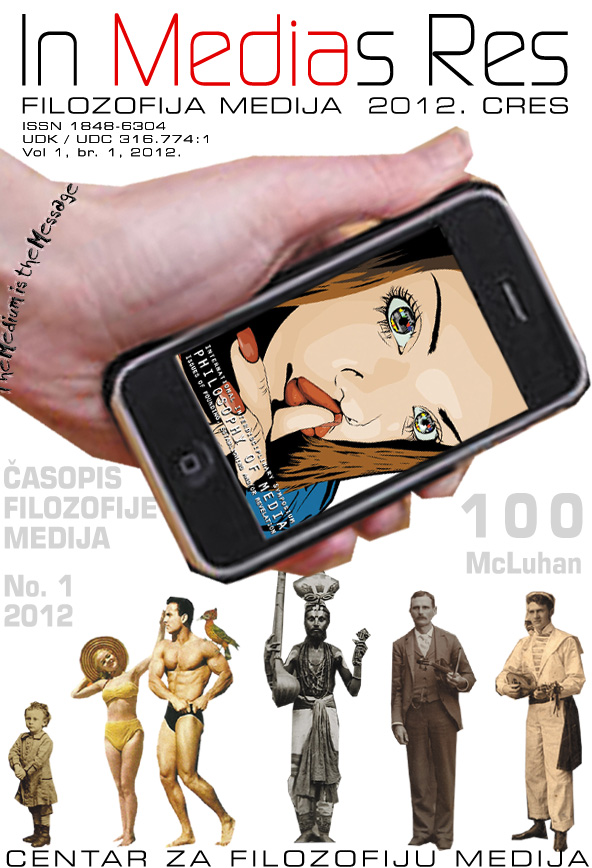Cyber-zbilja novih generacija i mekdonaldizacija društva i medija
Cyber-Reality of New Generations and McDonalization of Society and Media
Author(s): Nenad VertovšekSubject(s): Philosophy, Media studies, Communication studies, Philosophy of Science, Theory of Communication
Published by: Centar za filozofiju medija i mediološka istraživanja
Keywords: mass media; McDonaldization; postmodernism; virtual reality; cybernetization; alienation;
Summary/Abstract: Beyond the Promised Land of computer screens, mobile phones, television and film screens that we, say apologists for mass media, destined, after the "perfection" of the current change is (not) unveiled the future of new media technology. This is the future-who-must-come, but the question is how we will meet there. Are there any space in that cyber-future for the human orientations and those who do not think that technology and new media can solve every problem and every dichotomy? How to talk about possible disagreements between image and reality in a standardized world of uniformity, which actually lies behind the virtual wealth of flavor, color, taste and products of human souls and characters? In considering of the new media future benchmarks Ritzer's McDonaldization in which dehumanized social forms are gradually replaced by those appropriate to a man. Like Vattimo we must ask ourselves whether the social development assumes implicitly better self-consciously and transparent society, and how much mass media made society and its development more complex and chaotic. As if there is some "nostalgia" in man for a closed system where fast food is equivalent as fast mind, where food is more than food and the mind is not what the mind should be.Baudrillard this setting specifies as the simulacrum of the social world as determined by transitions from modern to postmodern society and transform the world of people in the game of pictures and symbols. Further dehumanization of society leads to "cybernetization" of the basic human characteristics and behaviors, ways of thinking about the basic concepts of life and death. The control of the society and individuals is larger and more diverse, as pointed out by Rushkoff and Groothius, and passive pre-release of majority to elitist minority.The voluntary acceptance of alienation as a possible "escape" occurs and, even when we know its causes. A new sense of life of the alienated man would be that he sets the alienation as his ultimate goal.
Journal: In Medias Res
- Issue Year: 1/2012
- Issue No: 1
- Page Range: 29-41
- Page Count: 13
- Language: Croatian

